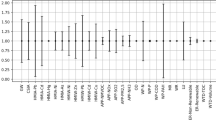Abstract
-
DOI: http://dx.doi.org/10.1065/lca2006.04.015
Goal, Scope and Background
The weighting phase in Life Cycle Assessment (LCA) is and has always been a controversial issue, partly because this element requires the incorporation of social, political and ethical values. Despite the controversies, weighting is widely used in practise. In this paper we will present an approach for monetisation of environmental impacts which is based on the consistent use of ecotaxes and fees in Sweden as a basis for the economic values. The idea behind this approach is that taxes and fees are expressions of the values society places on resource uses and emissions. An underlying assumption for this is that the decisions taken by policy-makers are reflecting societal values thus reflecting a positive view of representative democracy.
Methods
In the method a number of different ecotaxes are used. In many cases they can directly be used as valuation weighting factors, an example is the CO2-tax that can be used as a valuation of CO2-emissions. In some cases, a calculation has to be made in order to derive a weighting factor. An example of this is the tax on nitrogen fertilisers which can be recalculated to an emission of nitrogen which can be used as a weighting factor for nitrogen emissions. The valuation weighting factors can be connected to characterisation methods in the normal LCA practise. We have often used the Ecotax method in parallel to other weighting methods such as the Ecoindicator and EPS methods and the results are compared.
Results and Discussion
A new set of weighting factors has been developed which has been used in case studies. It is interesting to note that the Ecotax method is able to identify different environmental problems as the most important ones in different case studies. In some cases, the Ecotax method has identified some interventions as the most important ones which lack weighting factors in other weighting methods. The midpoint-endpoint debate in the LCA literature has often centred on different types of uncertainties. Sometimes it is claimed that an advantage with having an endpoint approach is that the weighting would be easier and less uncertain. Here we are however suggesting a mid-point weighting method that we claim are no less uncertain than other often used weighting methods based on a damage assessment. This paper can therefore be seen as a discussion paper also in the midpoint-endpoint debate.
Conclusion and Recommendation
The Ecotax method is ready to use. It should be further updated and developed as taxes are changed and new characterisation methods are developed. The method is not only relevant for LCA but also for other environmental systems analysis. The Ecotax method has also been used as a valuation method for Cost-Benefit Analysis (CBA), Life Cycle Costing (LCC) and within the context of a Strategic Environmental Assessment (SEA).
Similar content being viewed by others
Author information
Authors and Affiliations
Rights and permissions
About this article
Cite this article
Eldh, P., Johansson, J. Weighting in LCA Based on Ecotaxes - Development of a Mid-point Method and Experiences from Case Studies. Int J Life Cycle Assessment 11 (Suppl 1), 81–88 (2006). https://doi.org/10.1065/lca2006.04.015
Received:
Accepted:
Published:
Issue Date:
DOI: https://doi.org/10.1065/lca2006.04.015




